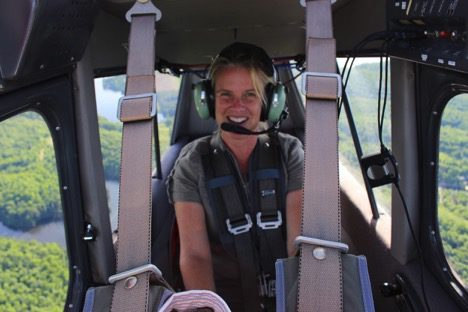Jan. 23, 2017
By AMANDA POPE
Staff reporter

A recent graduate from Ryerson’s master of journalism program has received a $25,000 Canada Council for the Arts grant to write a book on how local news coverage strengthens rural communities.
Angela Long, who graduated from the MJ program this fall, said ongoing losses of local news outlets prompted her to apply for the grant to explore the role of local news at the community level.
“There has been so much ‘doom and gloom’ lately in the world of journalism,” said Long, who is now a freelance journalist based in Toronto. “No one has looked at any of the smaller, rural newspapers or media outlets and the positive work that they do and the positive influence they have on their communities and the hard work it takes to put together such publications.”
Long, 46, says the voices of rural community members are lost when local media outlets close down: “We are always focusing on what is going on with the bigger media outlets. So we are missing the big picture of what’s going on in these smaller communities and how much more impact there would be if they lose their media outlet. They are already not as heard as urban outlets.”
Long, who is the author of the poetry collection Observations from Off the Grid, plans to write about a study she discussed in her recent article on the future of local news called “The Power of Place.” The study’s authors “found that local media outlets play an important role in strengthening these rural communities,” Long said. “I’m interested in researching the connections between local information, media outlets and resiliency in rural Canada, for my book.”
After interning with the the Haliburton Echo between June and September 2016, Long saw how local coverage connected people: “When you know your neighbours and what’s happening in your community, people have a sense of place. I see the town of Haliburton as a case study for how a community can become so strong because of their local media working which gives a voice to your neighbour.”
Long noted, however, that the internship also opened her eyes to the challenges small newspapers face in this era of news industry disruption.
“There was talk at the Echo on how they were concerned about advertising, losing revenue and their competitor– the Highlander, who was becoming more digital-oriented,” she said. “The Echo was trying to resist going digital even though they had a sense that the journalism landscape was changing.”
Long said her desire to advocate for smaller newspapers was inspired by her observations of the important role the Echo and its hard-working reporters played in their community.
She said she attempted to write a feature on this issue called “The Fluff Stops Here” for a class assignment but soon realized a single article was not enough to tell the full story: “To give the people the voice they deserve for this, I think I need to do something bigger.”
Long said she hopes that by raising awareness of the importance of local news her book will lead to greater recognition of the reporters and editors in small newsrooms who tell the stories of rural Canadians. The grant will allow her to travel across Canada to conduct interviews and other research beginning this spring.
